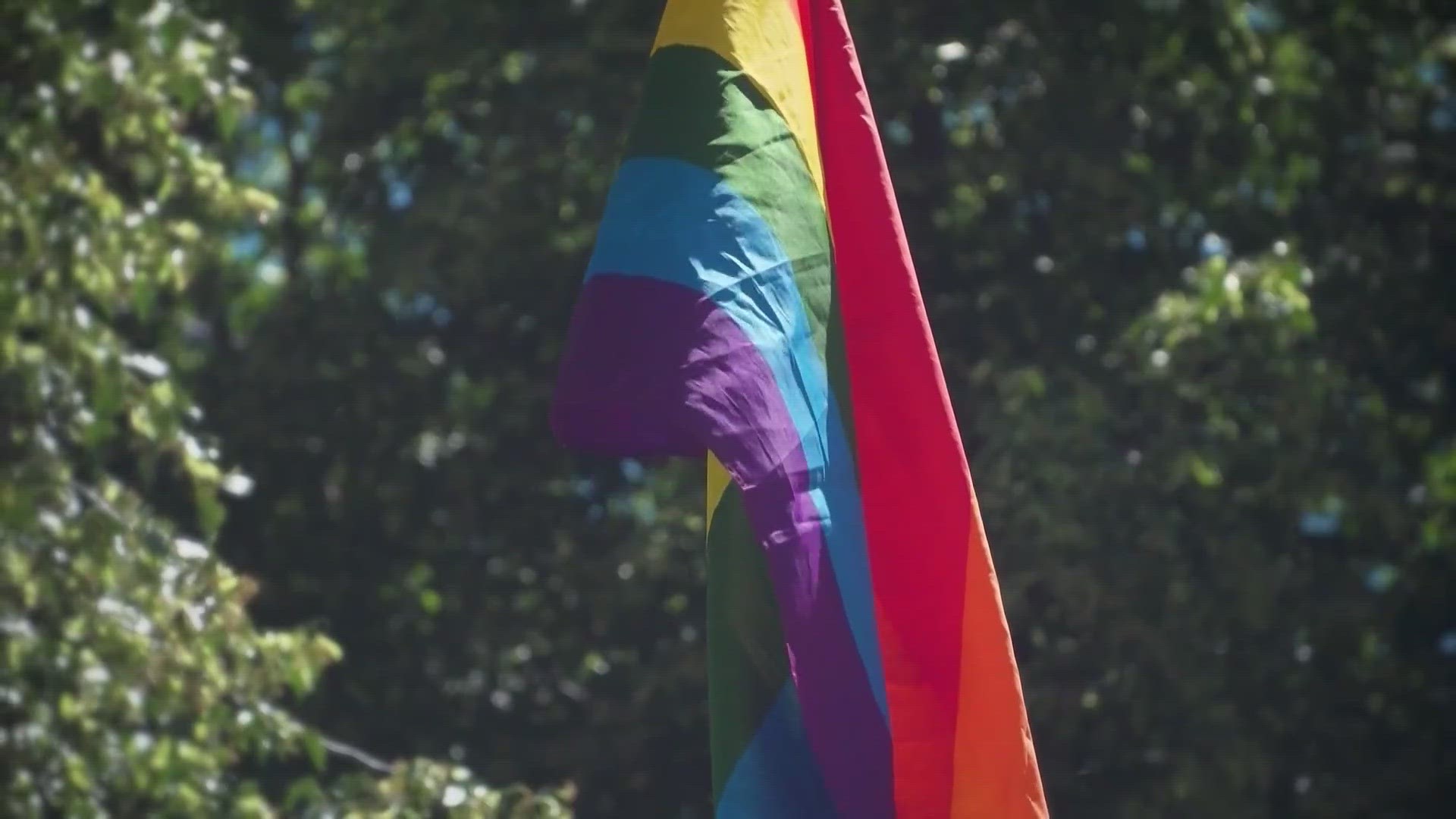SACRAMENTO, Calif. — Transgender Awareness Week is recognized every year in the U.S. from Nov. 13-19. The goal is to help increase understanding about transgender people and the issues they face. The word transgender or trans is an umbrella term used to describe people whose gender identity differs from the sex they were assigned at birth.
Trans Awareness Week takes place the week before Transgender Day of Remembrance (TDOR) on Nov. 20. It honors the memory of the transgender people whose lives were lost in acts of anti-transgender violence.
According to the Human Rights Campaign (HRC), an organization working to end discrimination against LGBTQ+ people, at least 26 transgender and gender non-conforming people died due to violent means, including through gun and interpersonal violence, in 2023. The HRC explains 73% were killed with a gun, 88% of victims were people of color and 54% were Black transgender women.
GLAAD is a nonprofit focused on LGBTQ advocacy and cultural change. Throughout the year, including Trans Awareness Week, GLAAD works to bring attention to the trans community by educating the public about who transgender people are, sharing stories and experiences, and advancing advocacy around issues of prejudice, discrimination and violence affecting the transgender community.
"Transgender Awareness Week is important because while there has been significant attention shifted towards the community in recent years, it's mostly done about us without our involvement or perspective," said Alex Schmider, director of transgender representation at GLAAD. "This week gives us an opportunity to center trans people in the conversation about our lives, deconstruct misconceptions about who we are often fed by misinformation and provide a human and personal connection to us and our stories."
The HRC says some of the specific issues facing the trans community include lack of legal protection, elevated rates of poverty, stigma, harassment, discrimination, violence, lack of healthcare coverage, and lack of accurate identity documents. There are also mental health challenges in the LGBTQ community largely because of stigma, discrimination and bias.
According to a 2023 national survey by The Trevor Project, an organization providing crisis support services to LGBTQ young people, 41% of LGBTQ youth seriously considered attempting suicide in the past year. And young people who are transgender, nonbinary or people of color reported higher rates than their peers. Nearly 1 in 3 LGBTQ youth also said their mental health was poor most of the time or always due to anti-LGBTQ policies and legislation.
The American Civil Liberties Union (ACLU) is tracking more than 500 anti-LGBTQ bills in the U.S. Most of the bills target access to health care for transgender youth.
"Transgender people face significant barriers when it comes to employment opportunities, financial security, exposure to discrimination and risk of violence," Schmider said. "All of this tragedy compounded with the escalation of anti-LGBTQ and anti-Trans legislation makes it an extremely challenging and often dangerous society for all of us to live."
Dr. Malakai Cote is passionate about helping others. He's a licensed psychologist in Sacramento. He offers mental health services to all, including LGBTQ people. Malakai is a non binary transgender person and says the challenges people in LGBTQ communities face are nothing new.
"We're not the problem, we have never been the problem," Cote said. "When people are hunting down, chasing down, and trying to actively harm, that's the problem. That's prejudice. That's discrimination. I have to work to stay in touch with my own humanity and making sure that my trans brothers and sisters and siblings can also stay in touch with their humanity to also live a life."
GET MORE RACE & CULTURE FROM ABC10:
►Explore the Race & Culture home page
►Watch Race & Culture videos on YouTube
►Subscribe to the Race and Culture newsletter
The Sacramento LGBT Community Center is on a mission to create a region where LGBTQ+ people thrive. That means supporting the health and wellness of LGBTQ people and their communities, too.
The Center offers mental health services, like counseling and support groups, for anyone dealing with depression, anxiety, victimization, homelessness, stress or other issues. All services are free. The Center is also recognizing Trans Awareness Week in November.
"We take time to raise awareness about the different challenges transgender people have faced and the contributions that they've made to their communities and throughout history," said Alexis Sanchez, director of advocacy and training with the Sacramento LGBT Community Center. "There are anti-LGBTQ groups that have focused in on the trans community as their targets for legislation and public policy. We're seeing forced outing bills, sports bans and bans on gender-affirming care. Transgender people are a vital part of our community. It's up to all of us to show up for them and do what we can to create a better world for all people and trans people, specifically."
To learn more about Trans Awareness Week and to get involved, visit the GLAAD website. For additional mental health resources in the LGBTQ community, visit the HRC website.
We want to hear from you!
The Race and Culture team's mission is to serve our diverse communities through authentic representation, community engagement and equitable reporting. Accomplishing our goals of inclusive reporting requires hearing from you. Is there a person or place that you want us to highlight? Email us at raceandculture@abc10.com or fill out the form below.

